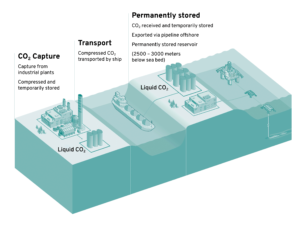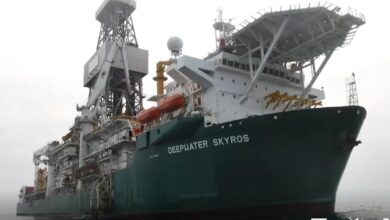Environment, Social and Governance
Total sets ambitions for net-zero emissions by 2050
In May, Total announced a commitment to get to net-zero emissions by 2050 for its global business, across its production and in the energy products used by customers.
Three major steps were announced as part of the pathway to achieve this ambition:
- Net zero across Total’s worldwide operations by 2050 or sooner;
- Net zero across all of its production and energy products used by its customers in Europe by 2050 or sooner; and
- 60% or more reduction in the average carbon intensity of energy products used worldwide by Total customers by 2050, with intermediate steps of 15% by 2030 and 35% by 2040.
Total says it believes this low-carbon strategy will provide a competitive advantage and create long-term value for its shareholders.
Major operators to invest in transport, storage of CO2
Equinor, Shell and Total have decided to invest in the Northern Lights project in Norway’s first exploitation license for CO₂ storage on the Norwegian Continental Shelf. Development plans have been given to the Ministry of Petroleum and Energy.

Initial investments will total almost NOK 6.9 billion, with an estimated 57% of the investment going to Norwegian contractors. The project will be developed in phases, with phase one including capacity to transport, inject and store up to 1.5 million tons of CO₂ per year. Once the CO2 is captured onshore by industrial CO₂ emitters, Northern Lights will be responsible for transport by ship, injection and permanent storage some 2,500 m below the seabed.
The CO₂ receiving terminal will be located in the municipality of Øygarden in western Norway. The plant will be remotely operated from Equinor’s facilities at the Sture terminal in Øygarden and the subsea facilities from Oseberg A platform in the North Sea.
Scottish Government sets up energy transition fund
The Scottish government has set up a multi-million pound fund to help the energy sector recover from the dual economic impacts of COVID-19 and the oil and gas price crash.
The £62 million Energy Transition Fund will support businesses in the oil, gas and energy sectors over the next five years as they grow and diversify and will help attract private sector investment in the region.Projects to be considered for funding include a global underwater hub, a hydrogen hub, and projects related to the Net Zero Solution Center, which was created to accelerate the development and deployment of decarbonization technologies.
Texas RRC considers plans to reduce flaring
The Texas Railroad Commission (RRC) met in June with the state’s oil and gas trade associations, environmental advocacy groups, and several oil and gas producers about implementing meaningful reforms to reduce flaring.
Trade associations involved in the state’s Blue Ribbon Taskforce for Oil Economic Recovery also unveiled a report for flaring recommendations and best practices during this meeting. Recommendations include reducing the time an administrative approval can be provided for flaring by 50% and providing greater clarity on data submissions to improve the information the RRC has on flaring in the state.
Maersk Drilling joins new CO2 storage consortium
Maersk Drilling has joined a new CO₂ storage consortium formed by INEOS Oil & Gas Denmark and Wintershall Dea. The consortium is maturing one of the most progressed carbon capture and storage projects inside Danish jurisdiction and targets the development of CO₂ storage capacity offshore Denmark based on reusing discontinued offshore oil and gas fields for permanent CO₂ storage.
As part of its commitment to the consortium, Maersk Drilling has pledged to contribute know-how and limited funding to the initial phases of the project.




